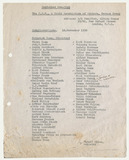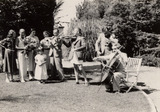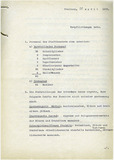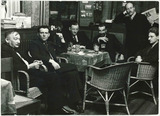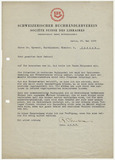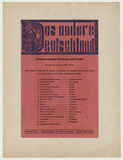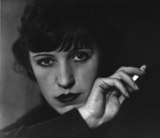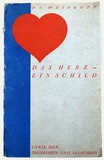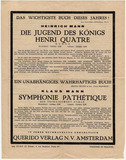The Free German League of Culture in Great Britain (1939-1946)
The Free German League of Culture (Freie Deutsche Kulturbund) in Great Britain was founded by German and Austrian emigrants in London on 1 March, 1939. Artists from the fields of music, literature, theatre and the visual arts as well as scientists joined together in this association.
The German PEN Club in exile 1933-1948
PEN stands for Poets, Essayists, Novelists. This international association of writers was set up in London in 1921. Its main objective was to bring together writers no matter what their origin, religion or nationality to contribute towards international peace efforts.
The Kolisch Quartet
The violinist Rudolf Kolisch had been in close contact with the composer Arnold Schönberg since 1919. He set up his own string quartet, originally known as the Wiener Streichquartett (Viennese String Quartet) for the concerts of Schönberg’s Viennese Society for Private Musical Performances.
The Law for the Restoration of the Professional Civil Service
Only a few weeks after Hitler’s ascension to power, the “Law for the Restoration of the Professional Civil Service” was passed on 7 April 1933. According to it, civil servants who were active in opposition parties or had close ties to them could be dismissed.
The Netherlands
In the first months after Hitler seized power an estimated 15,000 German refugees crossed the border to the Netherlands – mostly under the guise of tourists or travellers en route to another destination. At the end of the first Nazi wave of terror, it was Jewish exiles in particular who returned to their home country.
The Oprecht Publishing House, Zurich
Bookseller and publisher, guardian angel and saver of lives, these characteristics were all united in the person of Zurich native Emil Oprecht. The output of Oprecht Publishing House between 1933 and 1946 included at least 145 books from 115 exiled authors, almost one third of its publications in those years.
The Other Germany
The very differing lifestyles and reasons for taking flight meant that German exiles after 1933 were not able to unite in one political formation. The many sections of society the Nazis discriminated against were reflected in the very heterogeneous composition of the refugees.
The performing arts
The performing arts include theatre, musical theatre, dance, fringe theatre forms like cabaret and some aspects of conceptual art (performance). How do performing artists gain a foothold in other countries, when living in exile means being in another cultural environment where the local language is not their own native tongue? What conditions need to be in place to make a new start in exile? What impact living in exile has on artists who work in the performing arts depends on the one hand on the form of art in question and, on the other, on the circumstances in which they can work and be productive, as well as on public tastes in the receiving country.
The publishing house Malik-Verlag 1917 – 1939
The publishing house Malik-Verlag was one of the most important publishers of left-wing as well as avant-garde literature and art in the Weimar Republic. Set up in 1917 as a newspaper publisher, it developed in the 1920s to become a publisher of books.
The publishing house Querido Verlag (1933-1940)
After the exodus of German writers in the spring of 1933, the Dutch publisher Emanuel Querido founded a German speaking division for authors persecuted and banned in Germany. The co-owner and head of this department was Fritz H.
